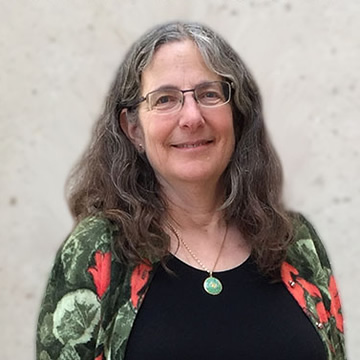| Faculty Profile: Dr. Lisa Goffman
|
|
 Dr. Lisa Goffman, the newest professor in the School of Behavioral and Brain Sciences, studies the language, speech, and motor abilities that underlie communication, with a focus on children with language learning difficulties. A major goal of her research is to find ways to help children with speech and language difficulties learn more effectively. Dr. Lisa Goffman, the newest professor in the School of Behavioral and Brain Sciences, studies the language, speech, and motor abilities that underlie communication, with a focus on children with language learning difficulties. A major goal of her research is to find ways to help children with speech and language difficulties learn more effectively.
Talking is a highly complicated motor and conceptual activity. To form words and sentences, children need to organize sounds and words into sequences and then coordinate the movements of their mouth (or hands in the case of sign language) to express their ideas. Children with language disorders have difficulty with many parts of this process. Language disorders affect more children than autism spectrum disorders, and Goffman said these children — who have poorer academic and social outcomes than their peers — are often under the radar.
Researchers and clinicians do not clearly understand why these children have difficulties, or how to best help them.
Goffman has spent more than two decades studying this intersection of motor and language development in children.
“All forms of language production — including speaking, gesturing and writing — are complicated motor activities,” said Goffman, who studies speech and language as action. “We are interested in how complex and sequentially organized movements develop in young language learners and, more critically, what can go awry in children with speech and language disorders. We have found that difficulties in sequential learning may be a critical factor that explains some of the challenges children with language disorders have in understanding and expressing language.”
Goffman received her bachelor’s, master’s and doctoral degrees at Purdue University. After earning her clinical masters in speech language pathology, Goffman worked in Chicago with infants, toddlers and their families at an interdisciplinary early intervention center. “It gave me the opportunity to look at a child and a family from many perspectives,” she said. Through this experience, she developed ideas about the field, gaps in the literature and frustrations of interdisciplinary clinical practice without a research base.
Following her time working as a clinician, and having noted some problems she wanted to understand, Goffman returned to school for her PhD to study the interface between motor and language development. She was mentored by a language researcher and a speech physiologist, and learned both linguistic and physiologic methodologies to studying early speech and language development. This focus set Goffman on the trajectory she continues today, linking motor and language to development and disorders.
After she earned her PhD in speech, language, and hearing sciences, Goffman joined the faculty at Purdue where she worked for 21 years. Goffman joined UT Dallas this January.
“There were some special things that drew me to this program. UT Dallas and the Callier Center for Communication Disorders have outstanding researchers and clinicians in the two domains that I specialize in, which are child language disorders and speech motor control. Callier is an extraordinary environment to conduct clinically motivated research in speech and language disorders” she said.
Goffman also noted the clinical programs at the Callier Center are large and very engaged in research.
“Having the clinical programs aligned with the research has amazing potential to dramatically change how we are assessing and, more importantly, how we are treating children with language learning disorders. It was this combination that brought me here to the Callier Center,” she said.
Starting in the fall semester, Goffman will teach a graduate course on early speech motor and feeding development, and an assessment and intervention course in the area of language disorders, among other topics. She is a fellow of the American Speech, Language and Hearing Association and serves as a grant reviewer and chair for the National Institutes of Health. In addition, she has been a journal editor and twice has received the editor’s award from the Journal of Speech, Language, and Hearing Research.
|
|
|
|
|
|